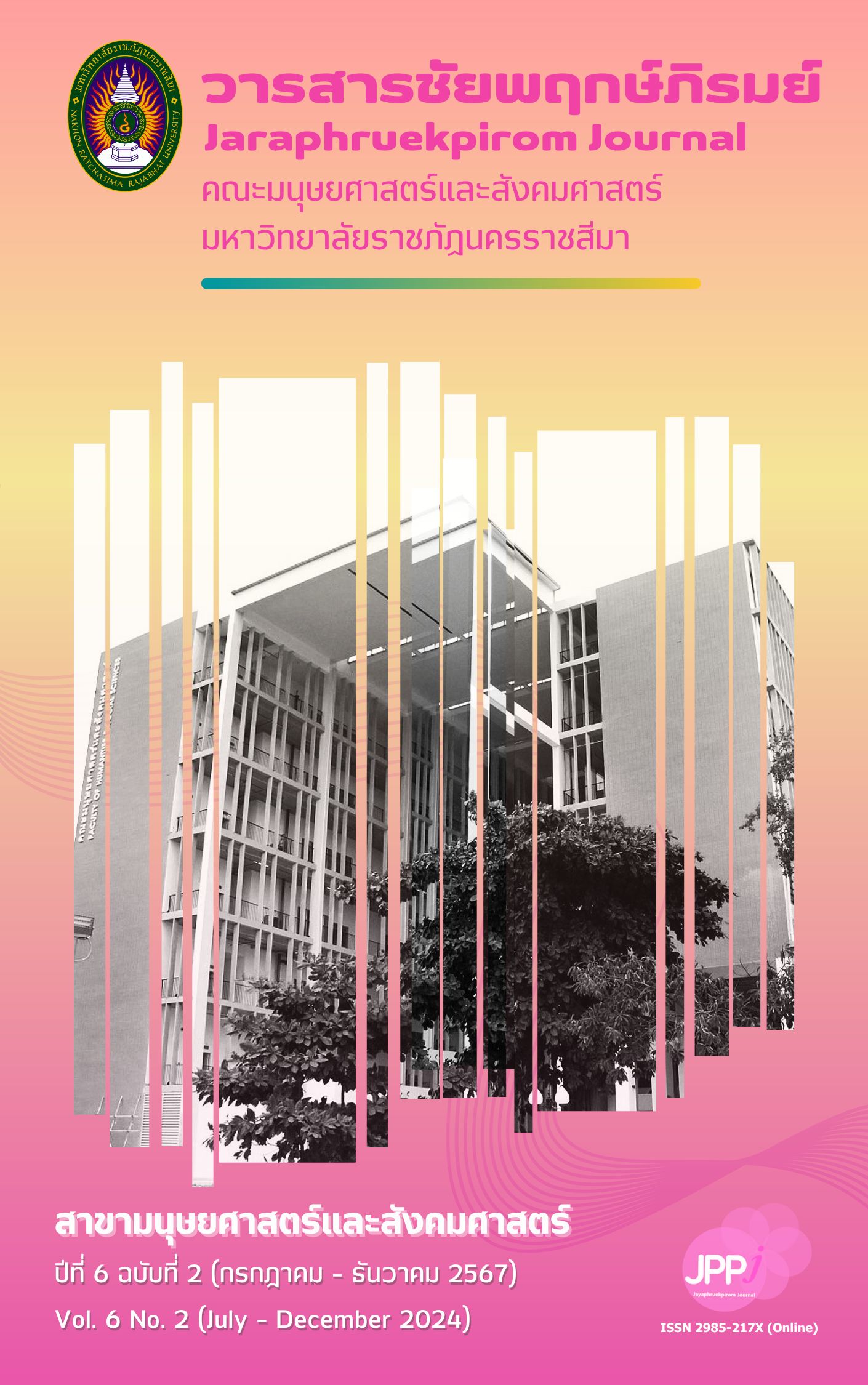THE DEVELOPMENT OF ACADEMIC ACHIEVEMENT IN SOCIAL STUDIES RELIGION AND CULTURE SUBJECTS ON THE TOPIC OF THE LORD BUDDHA’S HISTORY BY USING PROGRAMMED INSTRUCTION OF STUDENTS GRADE 2, BAN MAE LAMAO SCHOOL, MEASOD DISTRICT, TAK PROVINCE
Keywords:
Effectiveness of Programmed Instruction, Academic achievement, Buddha HistoryAbstract
The objectives of this research were to 1) establish and find out the effectiveness of programmed instruction on the topic of the Buddha’s biography of 2nd grade students at Ban Mae Lamao School, to meet the 80/80 criterion, 2) compare academic achievement before and after learning management with programmed instruction on the topic of the Buddha’s biography of 2nd grade students at Ban Mea Lamao School, and 3) study the satisfaction of 2nd grade students at Ban Mae Lamao School toward the learning management by using programmed instruction on the topic of the Buddha’s biography. The sample consists of 19 total number of 2nd grade students at Ban Mea Lamoa, Mae Sot District, Tak Province, by purposive sampling selection. The research tools consist of 1) the seven programmed instructions of the social studies, religion and culture subject on the topic of the Buddha’s biography, 2) the achievement test on the topic of Buddha's History, and 4) satisfaction questionnaire toward the programmed instruction. Statistics employed in analysis consists of Mean ( ), Standard Deviation (S.D.), and Dependent Sample t-test. The research results were found that 1) programmed instructions of the Buddha’s biography of 2nd grade students had an efficiency of 93.95/92.89, which is higher than the 80/80 criterion, 2) the academic achievement of 2nd grade students who participate the class on the topic of the Buddha’s biography after studying was higher than before at a statistical significance of .01, and 3) 2nd Grade students' satisfaction toward the programmed instruction on the topic of the Buddha’s biography was overall at the highest level ( =4.49, S.D.=0.46).
References
กมลณัฐ พิชัย นภากรณ์ ธัญญา. (2564). การพัฒนาบทเรียนสำเร็จรูปเรื่องวันสำคัญทางพระพุทธศาสนา กลุ่มสาระการเรียนรู้สังคมศึกษา ศาสนาและวัฒนธรรมสำหรับนักเรียนชั้นประถมศึกษาปีที่ 5/3 โรงเรียนอนุบาลวังม่วง สังกัดสำนักงานเขตพื้นที่การศึกษาประถมศึกษาสระบุรี เขต 2. วารสารพุทธสังคมวิทยาปริทรรศน์, 6(1), 107-118.
กระทรวงศึกษาธิการ. (2542). คำชี้แจงประกอบพระราชบัญญัติการศึกษาแห่งชาติ. กรุงเทพฯ: โรงพิมพกรมศาสนา.
กระทรวงศึกษาธิการ. (2551). ตัวชี้วัดและสาระการเรียนรู้แกนกลางกลุ่มสาระการเรียนรู้สังคมศึกษา ศาสนาและวัฒนธรรมตามหลักสูตรแกนกลางการศึกษาขั้นพื้นฐาน พุทธศักราช 2551. กรุงเทพ: โรงพิมพ์ชุมนุมสหกรณ์การเกษตรแห่งประเทศไทย.
นาฏยา อินพานิช. (2566). การพัฒนาบทเรียนสำเร็จรูปเรื่องหลักธรรมน่ารู้กลุ่มสาระการเรียนรู้สังคมศึกษาศาสนาและวัฒนธรรม ชั้นประถมศึกษาปีที่ 6/4 ปีการศึกษา 2565 เพื่อแก้ไขปัญหาเรื่อง “นักเรียนขาดความรับผิดชอบต่อสังคมและศีลธรรม”. วารสารการจัดการองค์กรและพัฒนาสังคม, 3(1), 47-54.
พระวชิรญาณ์ เต็งวรากรภัทร พิทักษ์ นิลนพคุณ และบุญเรือง ศรีเหรัญ. (2558). การพัฒนาผลสัมฤทธิ์ทางการเรียนเรื่องพุทธประวัติสำหรับนักเรียนชั้นประถมศึกษาปีที่ 3 โดยใช้ชุดสื่อประสม. วารสารบัณฑิตศึกษา มหาวิทยาลัยราชภัฏวไลยอลงกรณ์ ในพระบรมราชูปถัมภ์, 9(3), 134-146.
พระสิทธิพงษ์ สุทัสสโน นิรัช เรืองแสน ปาณจิต สุกุมาลย์ และ วิชิต นาชัยสินธุ์. (2564). ที่พัฒนาบทเรียนสำเร็จรูปเรื่องหน้าที่ชาวพุทธโดยการจัดการเรียนรู้แบบ Active Learning (MIAP) ของนักเรียนชั้นมัธยมศึกษาตอนต้น โรงเรียนพระปริยัติธรรมปัจฉิมวันวิทยา จังหวัดอำนาจเจริญ. Journal of Buddhist Education and Research: JBER, 7(2), 171-180.
มหลัก กอระ และ นีรนาท จุลเนียม. (2565). การพัฒนาบทเรียนสำเร็จรูปแบบเส้นตรงเรื่องศาสนาในประเทศไทย กลุ่มสาระการเรียนรู้สังคมศึกษา ศาสนาและวัฒนธรรมชั้นประถมศึกษาปีที่ 5. Education Journal of Nakhoratchasima College, 1(2), 108-126.
ศิริภา หลอมประโคน พระครูวิริยปัญญาภิวัฒน์ และ พระครูสาธุกิจโกศล. (2567). การพัฒนาผลสัมฤทธิ์ทางการเรียนเรื่องหลักธรรมทางพระพุทธศาสนาของนักเรียนชั้นประถมศึกษาปีที่ 5 โรงเรียนบ้านคอโค ตำบล คอโค อำเภอเมือง จังหวัดสุรินทร์ โดยใช้บทเรียนสำเร็จรูป. วารสารมหาจุฬาคชสาร, 15(1), 251-262.


